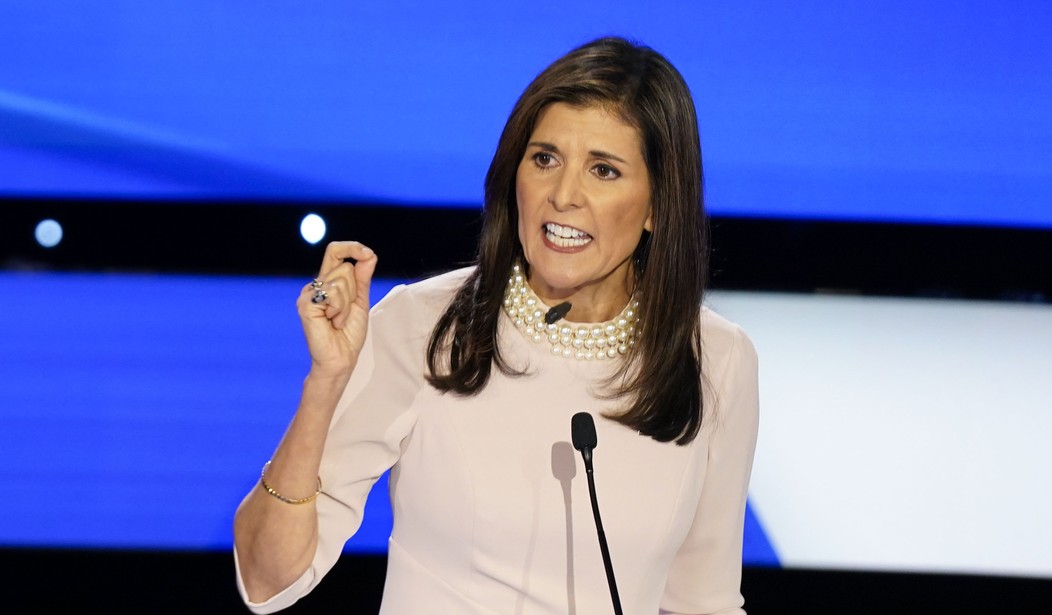Is Donald Trump guaranteed a victory in the primaries? Does Nikki Haley have a chance?
Conventional wisdom (and common sense) tells us that Trump will win going away and that Haley should start looking for a cushy academic position or a lucrative seat on a corporate board of directors.
Maybe we should ask President Howard Dean about that? If there's one thing we've learned about politics this century, it's that nothing is set in stone, and just because the pundits claim to hold the wisdom of the ages in their hands doesn't mean that they're infallible.
"If we’ve learned anything, it’s that the laws of political gravity or axioms about elected politics don’t always apply anymore," writes Politico. "Traditional voting habits have been thrown out the window. Polling has proved unreliable."
Pundits often talk about a candidate's "path to victory" whether it's narrow or broad. In Nikki Haley's case, it's damn near invisible. But it's there, and it's real. It's not likely, but then we're not looking back on a Hillary Clinton presidency, are we?
As long as Haley places or shows in Iowa — virtually no one in the state, and not even the campaigns themselves, think Trump will lose — she is in the hunt. In fact, she could join Ronald Reagan, George H.W. Bush, John McCain, Mitt Romney and Trump in the pantheon of GOP nominees who lost in Iowa.
After Iowa, it’s on to New Hampshire, where expectations will be higher. She’s already nipping at Trump’s heels in the latest polls, so anything less than a second-place finish could prove fatal to Haley’s campaign.
But New Hampshire is also uniquely suited for her. Polls suggest it is the early state where Trump is weakest. She has spent time and directed resources there and it shows — she has doubled her support over the past two months. Her efforts have been bolstered by popular GOP Gov. Chris Sununu, who is pulling out all the stops on her behalf.
In New Hampshire, independents can vote in the GOP primary and surveys show Haley with a wide lead among unaffiliated voters.
But Haley is playing the "expectations game," and if she can come within five points of Trump in New Hampshire, it's possible, however unlikely, that a shift toward Haley would begin in other states. It wouldn't even have to be a large shift, just something that moves the needle and starts people considering an alternative to Trump.
Contrary to conventional wisdom, Haley doesn’t have to win New Hampshire, or even South Carolina — she just has to keep it close enough to keep donors and voters convinced there might be a real nomination fight and move forward. Keep in mind that through the end of February, only 142 of the 2,429 delegates will have been allocated, just under 6 percent.
Which means Super Tuesday on March 5 looms as Haley’s moment of truth, the proving ground when the GOP learns once and for all if she’s the viable Trump alternative DeSantis was supposed to be. Roughly two-thirds of all GOP delegates will be allocated in March, the bulk of them on March 5. Among the 15 states up for grabs that day: California, North Carolina, Texas and Virginia.
As we've seen before, Super Tuesday will be the main challenge to the frontrunner's last stand. Haley would not only have to win most of the primaries, but she would also have to far outpace Trump as far as the day's delegate count is concerned. In short, she's going to have to win two-thirds of the 1,215 delegates available that be to be able to catch Trump and make a race of it.
Unless something catastrophic happens to the Trump campaign, it's not a likely scenario.










